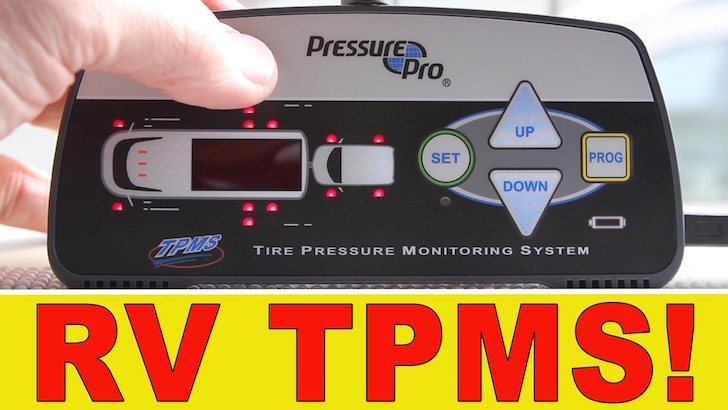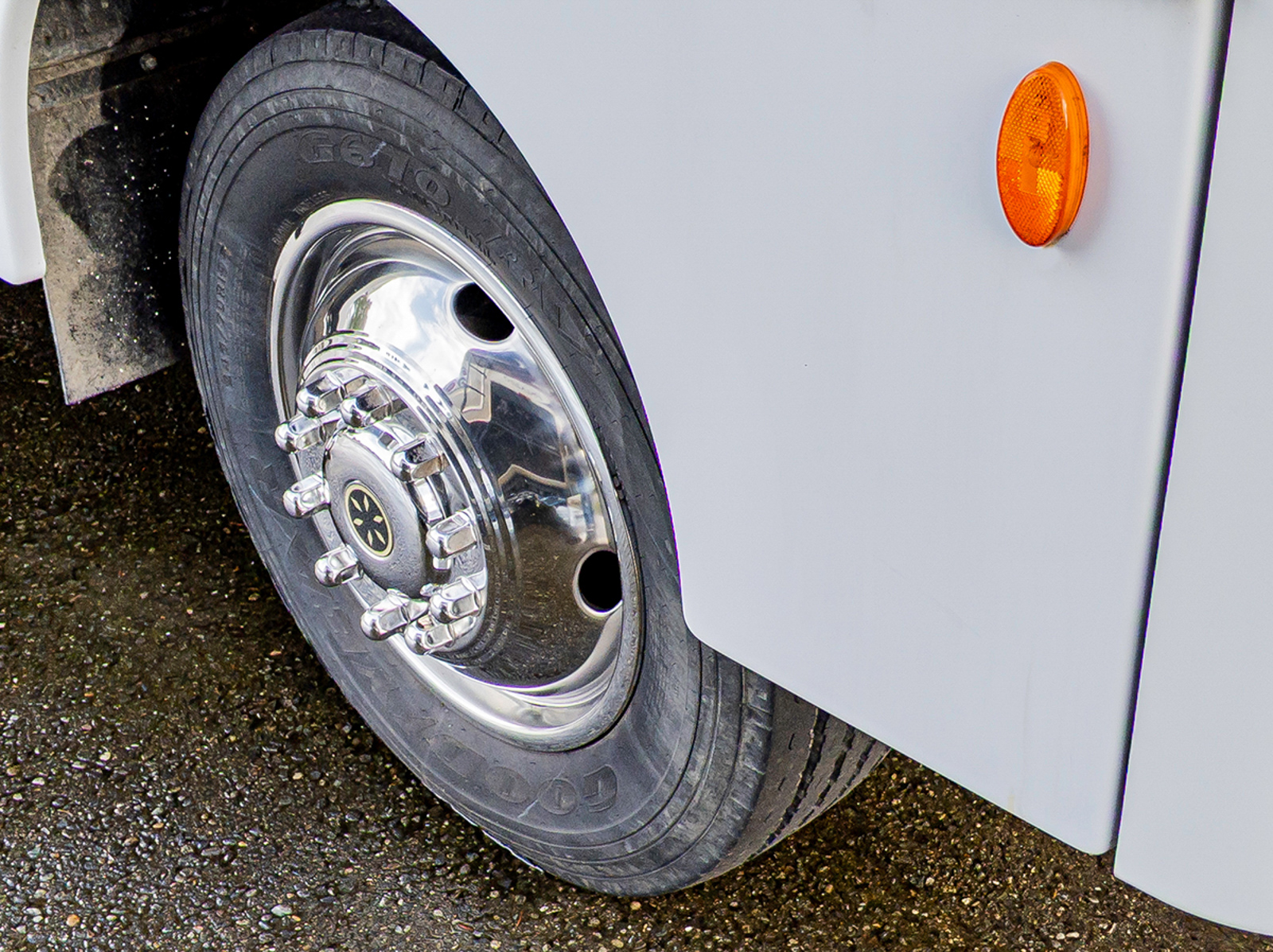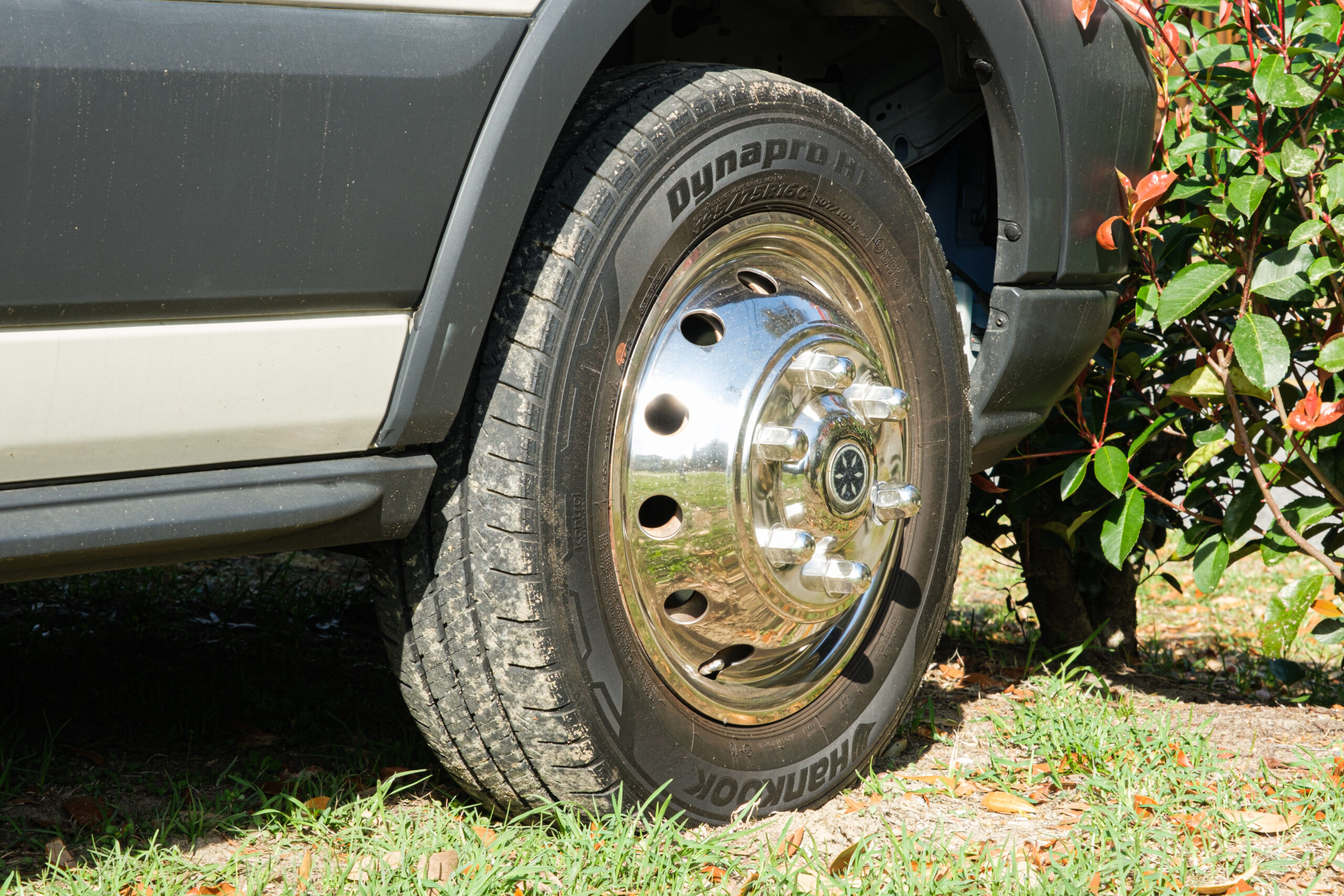Most people are used to driving vehicles with one wheel at each corner, such as a typical passenger car, mini-van or sport-utility. As soon as you add additional wheels, like the duals on the rear of most motorhomes, or the tandem wheels on many trailers and 5th wheels, there are additional things to be aware of.
Why Do You Need A Tire Pressure Monitoring System On Your RV?
The single biggest difference is that with multiple wheels working together, you might not notice a flat tire, since the good tire can support the weight of the RV enough to prevent an adjacent flat from looking…well…flat. The same goes for a tire with low pressure.
Upon visual inspection of the four tires on a passenger car, it will be pretty apparent if a tire is flat, or extremely low. But with the rear tires on an RV, you could look directly at a tire with no air in it and have no idea there’s a problem. Even if you’ve checked your tire pressures before starting out for the day, a leak that develops underway may not be discovered until a tire is dangerously low, or actually fails.
Under-inflation is the easiest way to kill a tire. It can cause excessive sidewall flexing, which can lead to overheating, potentially resulting in a blow-out.
Towing a car behind a motorhome, or a trailer behind a pick-up truck, further increases the likelihood that a low or flat tire will go undetected until it fails completely. A back-up camera is unlikely to provide enough of a view to help. If you do have a flat, you should consider yourself lucky if your first indication is from another driver waving frantically at you to pull over. The alternative could easily be considerable damage to your RV or toad, pieces of disintegrating tire endangering vehicles behind you, or an accident caused by loss of control.
A TPMS Will Allow You to Monitor the Pressure in Every Tire
The best way to monitor every tire on your rig (both the one towing and the towed), is to install a tire pressure monitoring system or TPMS. There are a lot of fine units on the market, but we chose a PressurePro for several reasons:
- The display has large, clear LEDs versus an LCD screen. This allows us to see it easily, even with polarized sunglasses on, which often make LCD displays unreadable.
- No batteries in the monitor. Being wired is a plus for us, since the unit isn’t used without a vehicle anyway. No batteries to replace or recharge.
- Although the sensors do not have replaceable batteries, and are therefore more expensive to replace, they last about 4 to 7 years, compared with replacing batteries every year. The lack of replaceable batteries also has the additional benefit of the sensors being 100% sealed against the harsh weather that they often have to endure down by the road surface. Screw them on and forget them for years.
- Made in the U.S.A., which is always a bonus as far as we’re concerned. It’s the only unit we looked at that is.
To help keep you as safe as we are, we’re giving away the same model PressurePro monitor that we use, along with 10 tire sensors, an awesome prize worth over $700! The giveaway ends on March 22, 2015, so be sure to enter today. Watch the video and enter to win a free PressurePro TPMS at this link…




